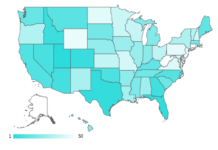
Do you have an employee (or several) unable to work right now due to a COVID-19 related reason? Then you need to know important new federal laws regarding sick and family leave enacted to address the pandemic. On March 18, Congress passed the Families First Coronavirus Response Act. Now that the bill has been signed into law, landscape firm owners need to act swiftly to amend policies. Here are some of the key provisions employers need to know right now.
Emergency Sick Leave
- Landscape firms with fewer than 500 workers will have to provide employees who cannot work with paid sick time off if the employee: is subject to a coronavirus quarantine or isolation order; has been advised by a health care provider to self-quarantine; is experiencing symptoms of coronavirus and is seeking a medical diagnosis; is caring for an individual in quarantine; caring for a child whose school or place of care is closed, or the child care provider is unavailable due to coronavirus precautions; or is experiencing any other substantially similar condition specified by HHS in consultation with the Treasury and Labor Departments.
- Full-time employees are to receive 80 hours of sick leave, while part-time workers receive leave equivalent to their average hours worked in a two-week period. In both cases, sick leave is available for immediate use regardless of the employee’s tenure.
- Paid sick time will not carry over from year to year.
- Workers taking leave for themselves will have to be paid at least their normal wage or the applicable federal, state, or local minimum wage, whichever is greater. Workers taking time off to care for family members must be paid at two-thirds of the foregoing rate. Sick leave is capped at $511 per day and $5,110 total for leave taken on one’s own behalf, and capped at $200 per day and $2,000 in total for leave taken to take care of another. In either case, an employer is not required to provide leave wages in excess of the cap.
- Wages required to be paid under the emergency sick leave provisions are not be subject to the 6.2% social security payroll tax typically paid by employers on employees’ wages.
- Employers with existing paid leave policies are be required to provide workers with the sick leave under this emergency program. An employer cannot require a worker to use any other available paid leave before using the sick time.
- Employers are prohibited from: requiring workers to find replacements to cover their hours during time off; or discharging or discriminating against workers for requesting paid sick leave or filing a complaint against the employer in this regard.
- Employers must post a notice containing information regarding the emergency sick leave provisions.
- The Department of Labor has proposed regulations to: exempt small businesses with fewer than 50 employees from the paid leave requirements “when the imposition of such requirements would jeopardize the viability of the business as a going concern.” (More on this below.)
Emergency Family Leave
- Employers with fewer than 500 workers will have to provide up to 12 weeks of FMLA leave for employees who have been on the job for at least 30 days (including employees who were laid off after March 1, had worked for the employer for at least 30 of the last 60 calendar days before being laid off, and were rehired by the employer), and who are unable to work or telework because they have to care for a minor child if the child’s school or place of care has been closed, or if the child care provider of that child is unavailable due to a coronavirus emergency.
- The first 10 days of leave can be unpaid (a worker could opt to use accrued vacation days or other available paid leave for those days). For subsequent days of leave, workers will receive a benefit from their employers equal to at least two-thirds of their normal pay rate. The paid leave is capped at $200 per day and $10,000 in total. An employer is not required to provide leave wages in excess of the cap.
- Generally, the employee on leave must be restored to his or her prior position; however, this requirement does not apply to employers with fewer than 25 employees if the position held by the employee on leave no longer exists due to economic conditions or other changes in the employer’s operating conditions caused by the coronavirus pandemic, and the employer makes reasonable efforts to restore the employee to an equivalent position.
- Wages required to be paid under the emergency family leave provisions will not be subject to the 6.2% social security payroll tax typically paid by employers on employees’ wages.
- The Department of Labor (DOL) has proposed regulations to exempt small businesses with fewer than 50 employees from the paid leave requirements “when the imposition of such requirements would jeopardize the viability of the business as a going concern.” According to DOL guidance, the exemption only applies if the leave is requested because the employee has a child whose school or place of care is closed, or the employee’s child care provider is unavailable because of COVID-19 related reasons and the request would result in (1) the employer’s “expenses and financial obligations exceeding available business revenues and cause the small business to cease operating at a minimal capacity,” (2) a “substantial risk to the financial health or operational capabilities of the small business because of their specialized skills, knowledge of the business, or responsibilities,” or (3) a “lack of sufficient workers who are able, willing, and qualified, and who will be available at the time and place needed, to perform the labor or services provided those requesting the leave.” Although the DOL has instructed small businesses with less than 50 employees to keep documentation that would demonstrate why the business qualifies for the exemption, the DOL has specifically instructed employers not to send documentation to a government entity in pursuit of it.
Employer Tax Credits
Refundable credits for the employer portion (but not the employee portion) of the Social Security payroll taxes will be provided to employers to cover wages paid to employees for time off under the above sick leave and family leave programs.
- The sick leave credit for each employee will be for wages (including qualified health plan expenses relating to those wages) of up to $511 per day while the employee is receiving paid sick leave to care for himself or herself, or $200 if caring for a family member or child whose school has closed. The credit will be limited to 10 days per employee.
- The family leave credit for each employee will be for wages (including qualified health plan expenses relating to those wages) of as much as $200 per employee per day, and $10,000 in the aggregate for all calendar quarters.
- If an employer expects its credits to exceed the federal employment taxes it has set aside for deposit, it can request an advance refund from the IRS on the new Form 7200.
- To prevent a double benefit, employers must include the amount of credits received in their gross income.
- Any wages taken into account in determining the credit allowed under the above emergency provisions will reduce the Internal Revenue Code section 45S paid family and medical leave credit established by the 2017 tax reform act available to the employer.
- An employer can elect to not take the credit for a given quarter.
Magidenko is an associate and Novak is a partner with Schiff Hardin, a general practice law firm with offices in New York City, Chicago, San Francisco, Washington D.C., Lake Forest, Ann Arbor, and Newport Beach. Magidenko is a tax attorney in the Ann Arbor office. Novak is the deputy practice group leader, labor and employment, and works in the Chicago office. Schiff Hardin has launched a task force to address the business, legal, and economic challenges that accompany the COVID-19 pandemic. Access other other articles in the Schiff Hardin Employment Law blog.
See more of Turf’s Special COVID-19 coverage on: new pandemic unemployment qualifications; state by state COVID-19 “essential business” designations for landscapers; and landscape worker safety during the pandemic.











![[VIDEO] Dickies®: Discover Workwear That’s Anything But Uniform](https://turfmagazine.com/wp-content/uploads/2023/06/1647663814-4b1a2a7742790a9b1e97a3b963477850192e1d6a9dfba9b07214a77bae25d6e3-d-218x150.jpg)






























![[VIDEO] Dickies®: Discover Workwear That’s Anything But Uniform](https://turfmagazine.com/wp-content/uploads/2023/06/1647663814-4b1a2a7742790a9b1e97a3b963477850192e1d6a9dfba9b07214a77bae25d6e3-d-324x160.jpg)